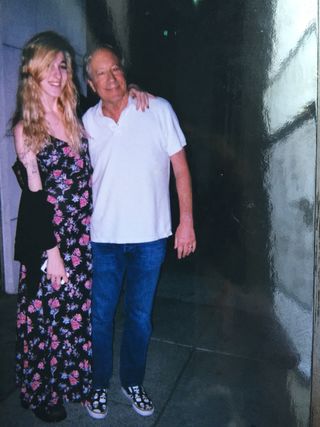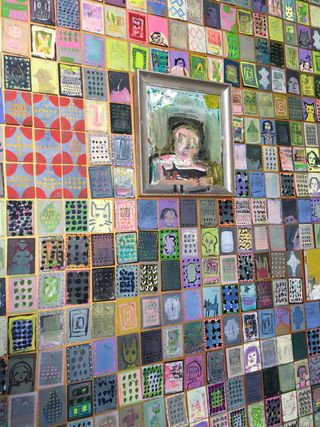

This is a photograph of my youngest daughter Emily and me on our way to dinner at Emily’s favorite restaurant. A few weeks after this photo was taken, Emily died suddenly and tragically on her 20th birthday, on June 3, 2015. Every morning I look at this photo and have a tearful conversation with her. “I love you Daddy,” Emily says, placing her arm lovingly around my shoulder, and I reply, “I love you so much Emmy; I miss you so much.” For a few brief moments I feel that my precious daughter is here with me again.
In his classic essay, “Mourning and Melancholia,” Freud (1917) claimed famously, and wrongly, that memories of a deceased loved one help a bereaved person gradually let go of the lost connection. On the contrary, such memories serve to solidify that connection and keep it alive. This is especially true when the memories are concretized in material objects such as photographs and works of art.
Emily was a passionate collector of many things. She especially loved to collect (and play) cards from the game “Magic: The Gathering.” She had thousands of cards. After Emily died, her mother, my wife Julia Schwartz, began a project of repurposing many of Emily’s objects including the cards, creating 4,000 small paintings that concretize and keep alive the enormity of Julia’s love for her. An entire wall featuring these cards is a highlight of Julia’s solo art show, which will open five days from now. I anticipate attending this show with a mixture of very intense feelings—joy at Julia’s prodigious artistic accomplishment in which Emily is powerfully present, and enormous sadness at Emily’s absence. An agonizing dialectic of presence and absence.


